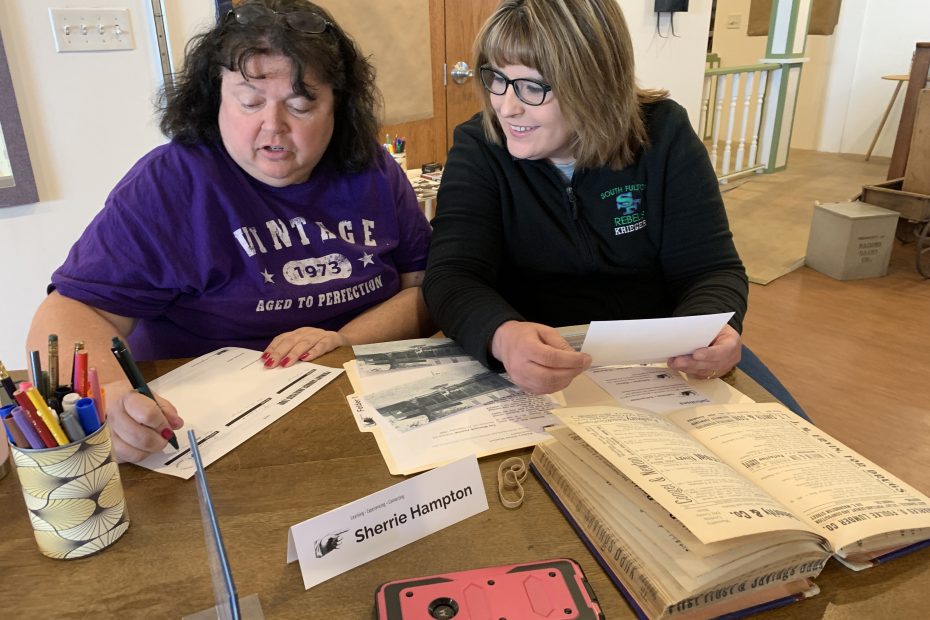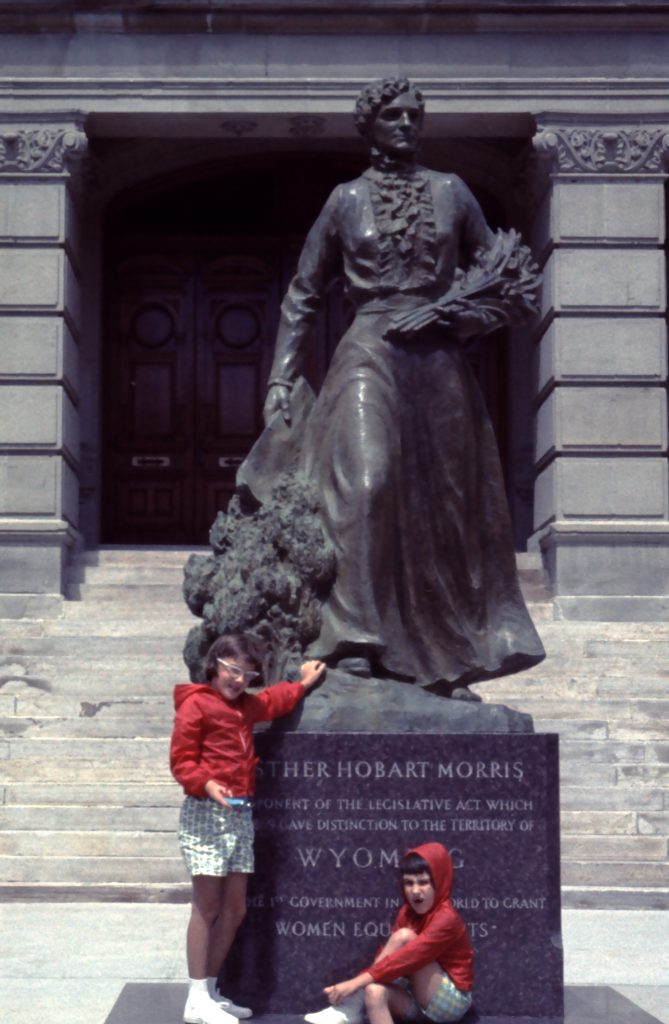
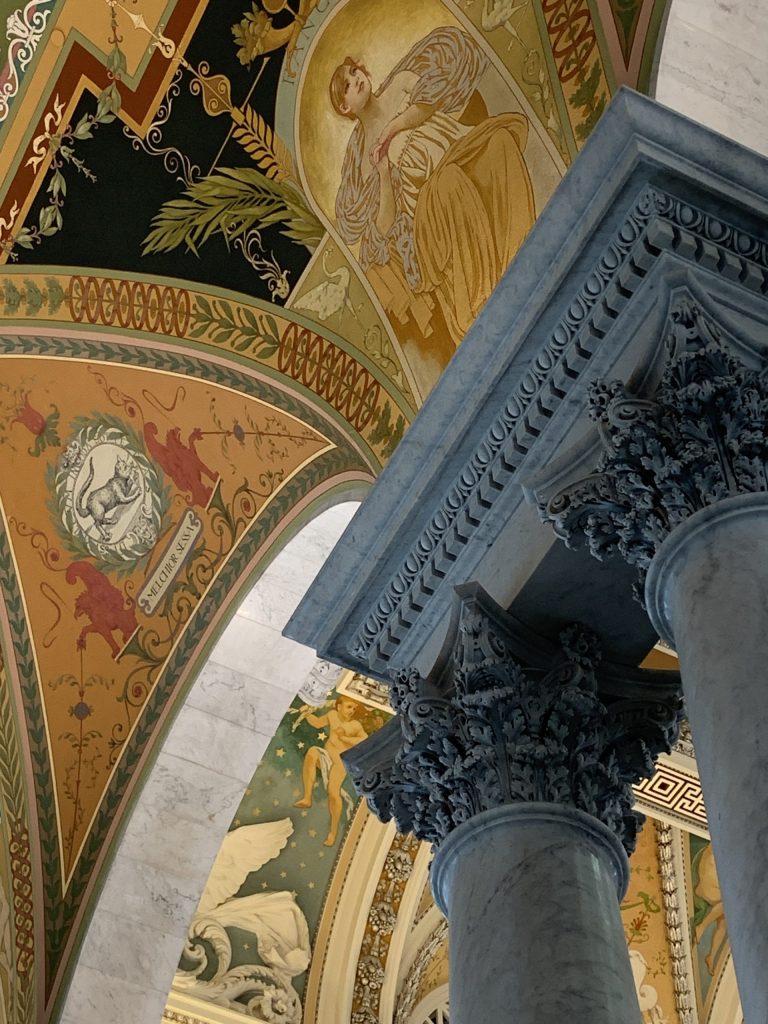
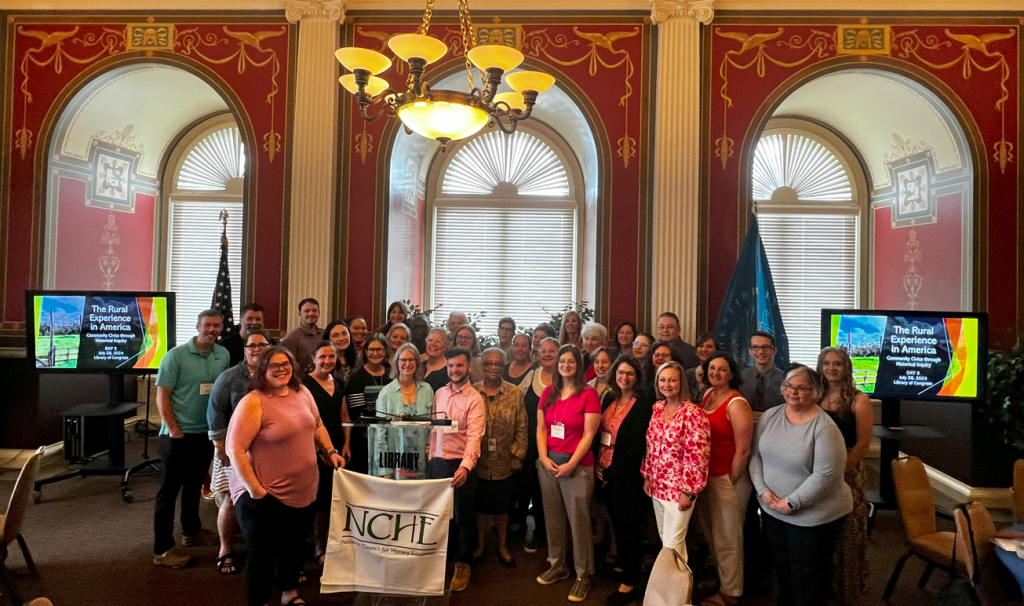
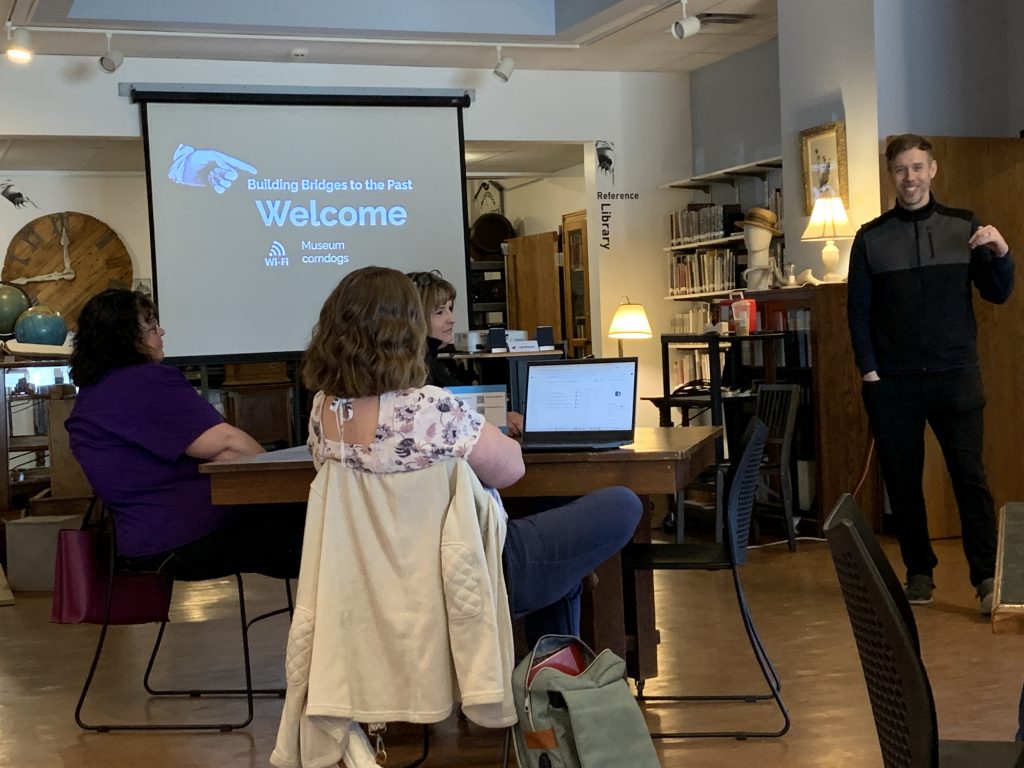
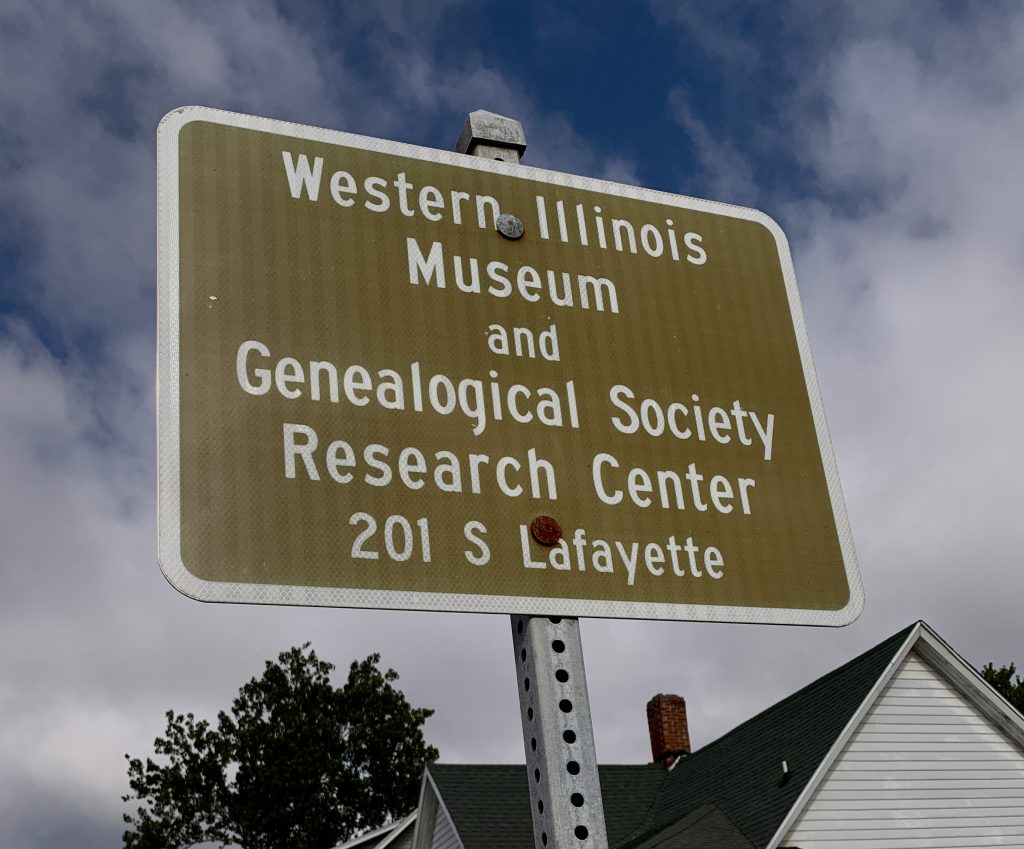
By Sue Scott, Executive Director
Many of my fondest memories of summertime are of road trips, visiting family, and making countless stops at museums and historic sites along the way. If there was a brown historical marker on our route, you could bet we were pulling over to check it out. These detours weren’t just about sightseeing—they sparked conversations, encouraged exploration, and brought history to life in ways that traditional learning couldn’t. Looking back, it’s no surprise that I now work in a museum.
Traveling has always heightened my curiosity. I’m eager to dive into the history and culture of the places I visit and enjoy the food, too. This summer, in late July, I had the privilege of traveling to Washington, D.C., as part of a three-year project designed to teach educators how to integrate primary sources into their classrooms. This initiative, developed by the National Council for History Education and funded by the Library of Congress, aims to bring historical materials into classrooms as a foundation for inquiry and discovery. The Western Illinois Museum has gladly served as a community partner, working closely with local educator Joe Brewer and his students from Cuba High School to bring local history into their classrooms.
The sessions took place in the Library of Congress—a building as magnificent as its mission. For me, libraries have always been havens of self-directed learning, places where curiosity leads to discovery. The emphasis on Teaching with Primary Sources and inquiry-based learning shared during these sessions perfectly aligns with this philosophy. This is an effective way to create lifelong learners, and this initiative empowers educators to nurture that spirit of inquiry in their students.
This project’s impact is rooted in its ability to involve community partners such as museums, archives, historical societies, and local residents. The educators involved discussed how, by learning from each other, students and community members together became stewards of the history that shapes our communities. This collaborative approach enriches education and deepens our connection to our shared heritage.
One of the most exciting outcomes of the Museum’s involvement in this project has been the opportunity to bring these concepts to our region. This past April, with funding from the Library of Congress Midwest Region, we hosted two all-day workshops where educators could learn these techniques and earn professional development credits. Joe Brewer led the sessions and conducted three additional work sessions or labs to help participants develop lesson plans and identify local historical resources. The grant allowed us to offer stipends to the 16 participants who traveled from as far as the Quad Cities and Rushville to attend.
While Joe provided sound educational methods, the Museum shared materials from our collection, demonstrating how working with primary sources can be adapted to all grade levels. With an inquiry-based approach, students can take ownership of their learning, deepening their interests and sustaining their curiosity.
Vacations are rich with experiences, and learning often happens in the most unexpected places. We advocate visiting a museum with someone and sharing ideas and insights, turning a simple roadside stop into a deeper understanding of the world around us. The Western Illinois Museum proudly has a few brown roadside signs and is honored to be part of many people’s educational journeys, helping to turn curiosity into lifelong learning.
